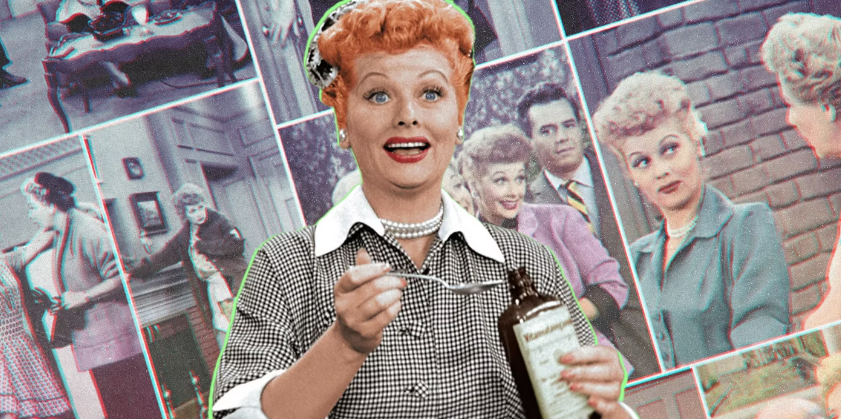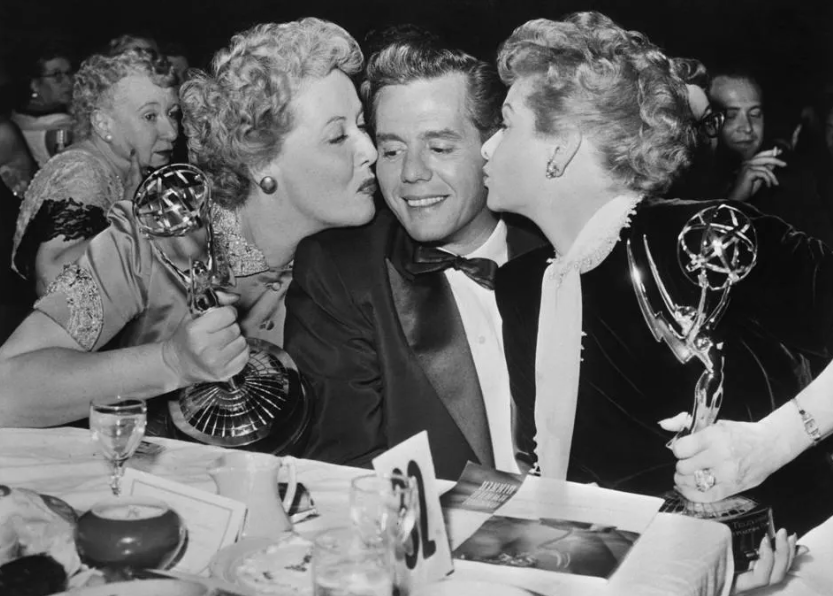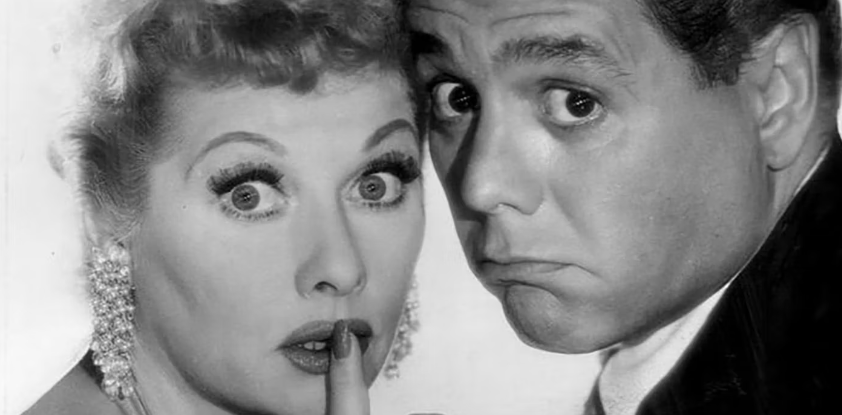
“I Love Lucy” is a name synonymous with laughter, groundbreaking comedy, and enduring legacy. Since its debut on October 15, 1951, the iconic sitcom has left an indelible mark on television history, capturing the hearts of millions with its witty humor and charming characters. The show’s innovative approach, memorable performances, and cultural impact continue to resonate, making “I Love Lucy” a timeless classic. In this article, we delve into the legacy of “I Love Lucy,” exploring its origins, influence, and why it remains a beloved show even today.
Contents
- The Origins of “I Love Lucy”
- Lucille Ball: The Queen of Comedy
- Desi Arnaz: The Perfect Partner
- The Supporting Cast: Enhancing the Humor
- Innovative Production Techniques
- Desilu Productions: A Trailblazing Studio
- Memorable Episodes and Iconic Moments
- Vitameatavegamin: A Comedy Classic
- The Grape-Stomping Episode
- The Enduring Legacy of “I Love Lucy”
- Cultural Impact
- Awards and Recognition
- Global Reach: “I Love Lucy” in Latvia
- A Familiar Return
- Nostalgia and Anticipation
- Conclusion: The Timeless Appeal of “I Love Lucy”
The Origins of “I Love Lucy”
“I Love Lucy” was created by husband-and-wife duo Lucille Ball and Desi Arnaz, who brought their real-life chemistry to the screen. The show starred Lucille Ball as Lucy Ricardo, a mischievous and endearing housewife with a penchant for getting into humorous situations, and Desi Arnaz as her husband Ricky Ricardo, a Cuban bandleader. The couple’s genuine chemistry and comedic timing were pivotal in making the show a hit.
Lucille Ball: The Queen of Comedy

Lucille Ball’s portrayal of Lucy Ricardo showcased her exceptional comedic talent. Known for her expressive facial expressions, impeccable timing, and physical comedy, Ball quickly became a beloved figure in American households. The Hollywood Reporter praised her in a 1951 review, noting that Ball combined “the facial mobility of Red Skelton, the innate pixie quality of Harpo Marx, and the daffily jointless abandon of the Patchwork Girl of Oz.”
Desi Arnaz: The Perfect Partner
Desi Arnaz’s role as Ricky Ricardo was equally significant. Arnaz’s musical talent, charisma, and ability to play the straight man to Ball’s antics added depth to the show. His portrayal of a Cuban-American bandleader also brought a unique cultural element to the series, reflecting Arnaz’s real-life heritage and adding authenticity to his character.
The Supporting Cast: Enhancing the Humor

While Ball and Arnaz were the show’s stars, the supporting cast played a crucial role in its success. William Frawley and Vivian Vance, who portrayed Fred and Ethel Mertz, the Ricardos’ landlords and best friends, added another layer of humor and camaraderie. Their interactions and comedic timing provided a rich backdrop for the show’s central narrative.
Innovative Production Techniques
“I Love Lucy” was a pioneer in more ways than one. The show was one of the first to be filmed in front of a live studio audience using a multi-camera setup. This technique, developed by cinematographer Karl Freund, allowed for a dynamic and engaging viewing experience. Filming in front of a live audience also meant that the actors received immediate feedback, enhancing the comedic timing and delivery.
Desilu Productions: A Trailblazing Studio
Desilu Productions, founded by Lucille Ball and Desi Arnaz, was instrumental in the show’s success. The decision to use 35mm film and the innovative multi-camera setup were pivotal in setting a new standard for television production. Desilu Productions not only produced “I Love Lucy” but also went on to create several other successful shows, cementing its place in television history.
Memorable Episodes and Iconic Moments

“I Love Lucy” is known for its unforgettable episodes and comedic moments that have become part of popular culture. From the hilarious “Vitameatavegamin” commercial to the iconic grape-stomping scene, the show consistently delivered laughter and memorable performances.
Vitameatavegamin: A Comedy Classic
One of the most famous episodes, “Lucy Does a TV Commercial,” features Lucy Ricardo attempting to perform a commercial for the health tonic Vitameatavegamin. The scene, in which Lucy becomes increasingly intoxicated from the tonic’s high alcohol content, showcases Lucille Ball’s incredible comedic talent and remains a fan favorite.
The Grape-Stomping Episode
Another iconic moment is the grape-stomping scene from the episode “Lucy’s Italian Movie.” In this episode, Lucy visits an Italian vineyard and participates in a traditional grape-stomping. The physical comedy and Lucy’s exaggerated reactions make this scene one of the most memorable in television history.
The Enduring Legacy of “I Love Lucy”
The impact of “I Love Lucy” on television and popular culture is profound. The show set a high standard for sitcoms and introduced several innovations that continue to influence the industry. Its success demonstrated the potential of television as a medium for storytelling and comedy.
Cultural Impact
“I Love Lucy” has remained a beloved classic for over seven decades, influencing generations of viewers and comedians. The show’s reruns have introduced Lucy Ricardo’s antics to new audiences, proving the timelessness of its humor and the universality of its themes. The phrase “I Love Lucy” has become synonymous with quality entertainment, and Lucille Ball is remembered as one of the greatest comedians in television history.
Awards and Recognition
Throughout its run, “I Love Lucy” received numerous accolades, including five Emmy Awards. Its innovative approach and outstanding performances were consistently recognized by critics and audiences alike. The show’s enduring popularity led to several spin-offs, specials, and even a successful stage adaptation.
Global Reach: “I Love Lucy” in Latvia
The enduring popularity of “I Love Lucy” has transcended borders, inspiring a new generation of fans around the world. Recently, CBS Studios International announced a deal with Latvian broadcaster MTG TV to reboot “I Love Lucy” for the Baltic market. The Latvian series, titled “Darling Monika,” will run for 10 episodes on Latvian network LNT this September.
A Familiar Return
This isn’t the first time “Lucy” has appeared in the Baltics. “Darling Monika” originally launched on Latvian TV 16 years ago and became the most popular sitcom in the country. The new series is a reboot of the old show, featuring the same cast and following the life of the hapless and hilarious Monika Rambans, her patient and loving husband, Robert, and their neighbors.
Nostalgia and Anticipation
“Sixteen years ago, ‘Darling Monika’ was the most popular sitcom in Latvia,” said Ginta Bormane, PR manager at MTG TV. “There is arguably no one in the country who isn’t familiar with the bubbly and energetic character. To celebrate the 20th anniversary of LNT, we decided to bring back Monika. We believe it is one of the most awaited television events of this autumn.”
Conclusion: The Timeless Appeal of “I Love Lucy”
“I Love Lucy” is more than just a television show; it is a testament to the enduring power of comedy and the innovative spirit of its creators. Lucille Ball and Desi Arnaz’s visionary approach to television production, combined with their extraordinary talent, created a series that continues to delight and inspire. The show’s legacy is evident in its lasting popularity, its influence on future generations of comedians, and the continued relevance of its production techniques.
As “I Love Lucy” prepares to make its comeback in Latvia as “Darling Monika,” it reaffirms the timeless appeal of the show. For fans of classic television and newcomers alike, “I Love Lucy” offers a masterclass in comedic excellence and a glimpse into the early days of a medium that has since become an integral part of our lives.

